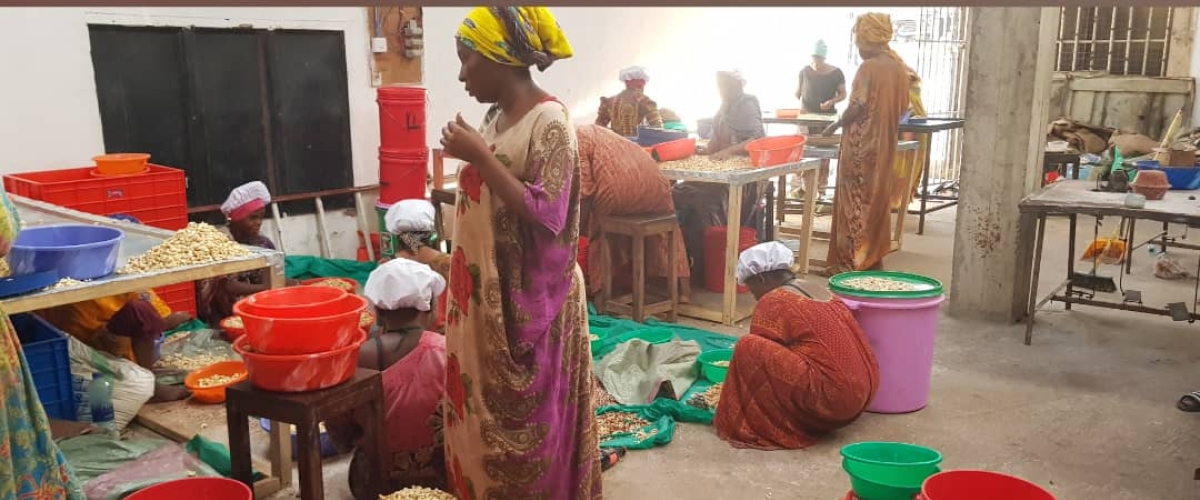
By Julius Butundi
My name is Anifa Temba, and I’m proud to call myself an entrepreneur. I hold a Bachelor of Commerce in Material Management, but my true education came from the dusty fields of my childhood, where I watched my parents toil with maize, beans, livestock, and poultry. It was in those rural routines that a dream was planted to become a businesswoman who turns agricultural potential into prosperity.

Like many young people in developing countries, I faced the challenge of unemployment after completing my studies. I was fortunate to secure a contract position at a financial institution in Tanzania, where I rotated between departments like marketing and customer service. The pay was modest, but the skills I gained, understanding customer needs, market dynamics, and the art of communication, were priceless. When my contract ended, I saw not an end, but a new beginning.
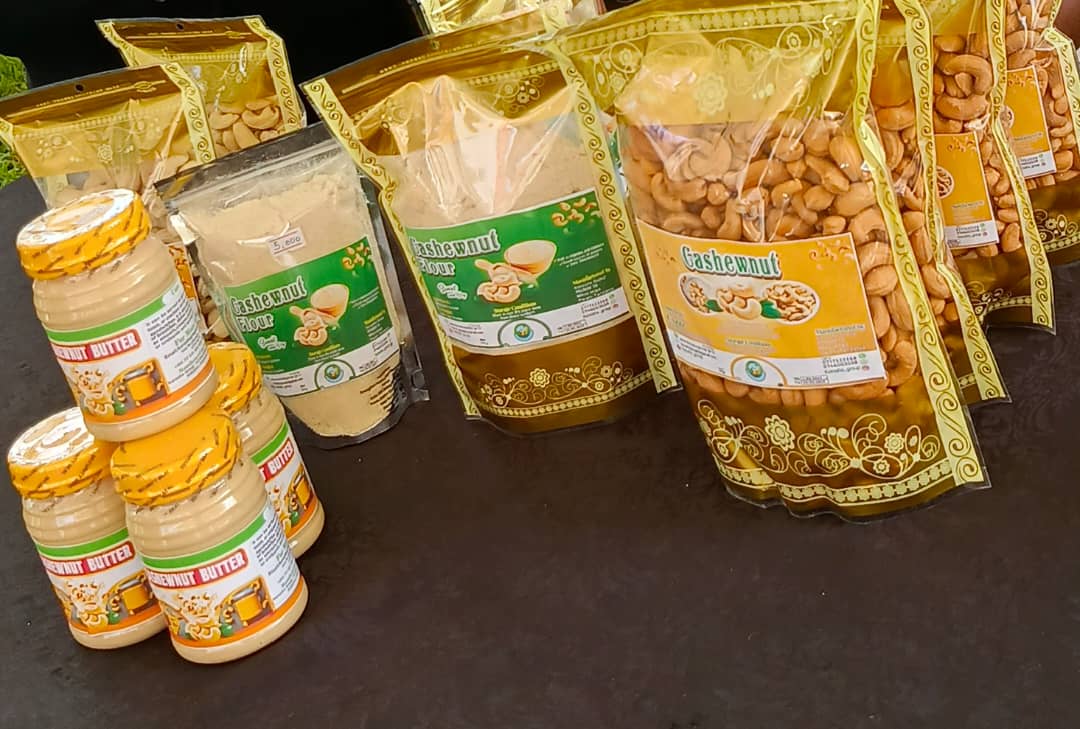
I decided to take a bold leap into the world of cashew value addition. Capital was tight, but I didn’t let that stop me. I started small, buying modest quantities of raw cashews, adding value through basic processing, repackaging them, and selling to customers, many of whom I had met in my previous job. Demand began to grow faster than I could supply.
In early 2020, I approached one of the directors from whom I sourced my cashews and shared my dream: to build a women- and youth-led small-scale cashew processing industry that could grow into something big, something job-creating and market-transforming. Inspired by others in the field, I formed a cooperative of 11 passionate individuals. Six had years of hands-on experience in the cashew industry but lacked capital. Four were entrepreneurs with small investments and little technical knowledge. One was a visionary farmer who wanted to add value but didn’t know how.
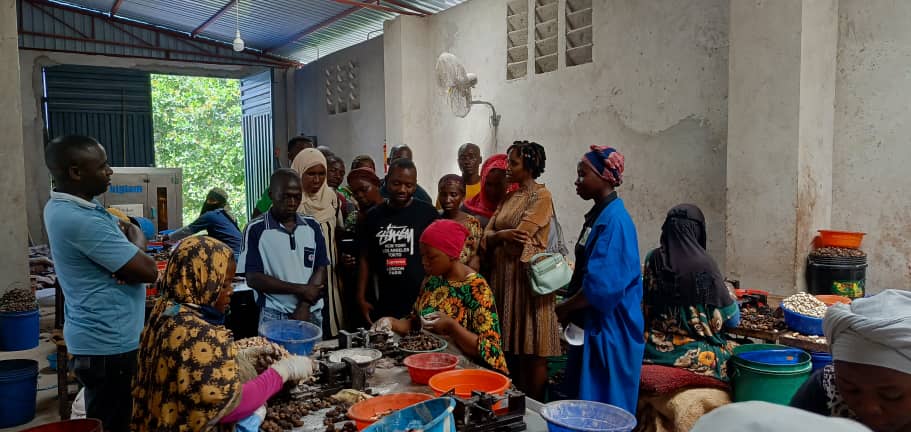
We pooled our ideas and resources. We bought 20 used manual cutting machines, hired carpenters to build worktables, and purchased buckets, trays, and bowls. That same year, Korosho Group Cooperative was born. We processed our first 5 tons of kernels in Vingunguti, Dar es Salaam. Without boilers, dryers, or storage, we relied on nearby factories, limiting our profits. Then came a blow: the premises we rented were repossessed by the government for road expansion.
Undeterred, we scouted new locations and settled in the Pwani Region, where raw materials were abundant. We rented a godown in Mwanambaya, Mkuranga. That season, we processed 200 tons and created jobs for 120 women and youth. But just as we were picking up speed, the COVID-19 pandemic hit, cancelling international orders and flooding the local market with oversupply. Yet even then, I refused to give up.

I gathered the team and pitched a new dream, our own land, our own factory. With savings from sales and our unused rent, we purchased land at Kididimo Industry Area. Though the challenges were many, our vision was clear.
By June 2023, we had cleared the land, installed three-phase electricity 500 meters from the grid, and drilled a well that now also provides water for the local community. We constructed our small factory, office, and sanitation facilities. In December, we inaugurated our site by processing 10 tons of kernels supplied by our member farmers. We employed 20 experienced workers and trained 30 new women in cashew handling.
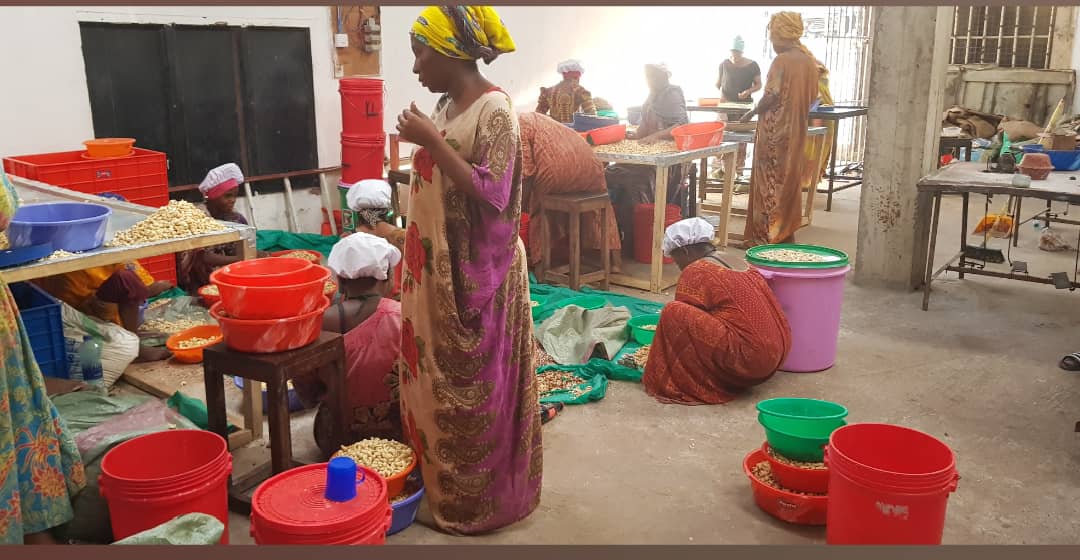
We’ve now expanded beyond kernels. We produce cashew butter, cashew flour, roasted and sweetened cashews in various flavors, and we continue exploring innovative by-products. We even launched a small poultry unit, feeding chickens with cashew waste, creating a sustainable, circular model that’s proving effective and profitable.
So far, we have provided practical training to 142 women and youth farmers across Mkuranga, Mafia, and Rufiji districts. Our factory has become a learning center, attracting visitors from both public and private sectors. We’ve hosted trainees from the African Cashew Alliance Master Training Programme and even welcomed delegates from the European Union. I believe this is just the beginning.
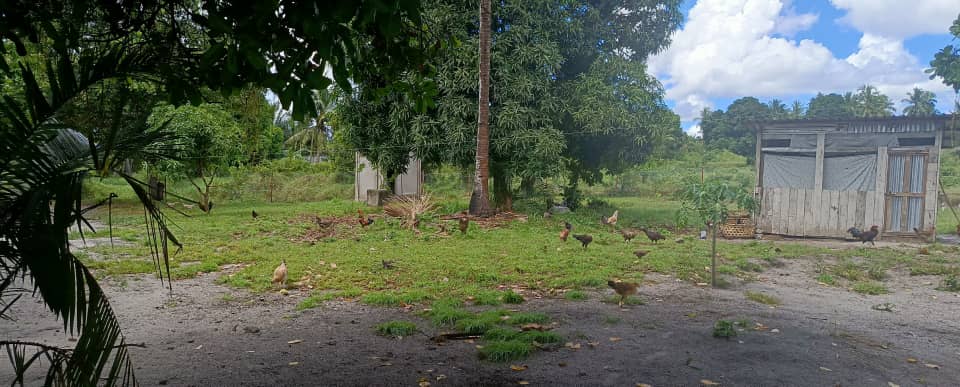
By 2027, I envision Korosho Group as one of the most successful women- and youth-led agribusinesses in Tanzania, empowering farmers to process and sell high-value cashew products instead of raw nuts. We are not just adding value to cashews; we are adding value to lives, to communities, and to the future of agribusiness in Africa.
The author is a Research Assistant (Technology Transfer and Partnership) at Tanzania Agricultural Research Institute ((TARI) Naliendele Center





